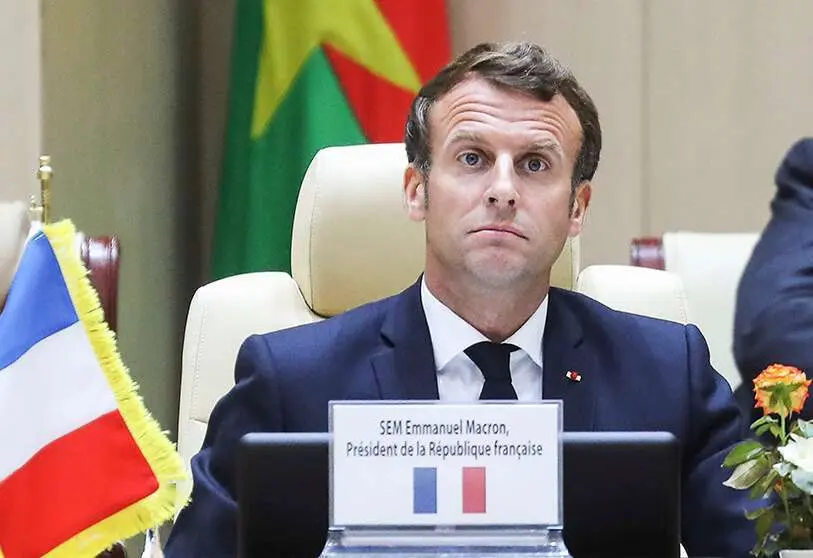Africa and France: the criticised Macron interview that has caused such a stir in Algeria

On 20 November an exclusive interview with President Emmanuel Macron was published in the newspaper Jeune Afrique, which received a harsh response from some African countries, particularly Algeria. In this interview the French president spoke of Franco-African relations, delving into several current issues such as the negotiations with Jihadists in Mali, the crisis in Algeria and the elections in Côte d'Ivoire.
The beginning of the interview is devoted to Franco-African relations, in which President Macron underlined several aspects of the refounding of relations, including the restitution of African heritage, the end of the CFA franc and good economic relations and relations with the expatriate community. Apart from these specific measures on which President Macron based this theoretical change and regeneration in the relationship between France and Africa, what was most striking in his address was the fact that he said that "the destinies of Africa and France were linked" and that "the relationship between the country and the continent must be that of a love story". Although he acknowledges that the colonial past has marked relations up to this point, he considers that "one should not be a prisoner of the past". That colonial history, in his opinion, has been marked by miscegenation, mixed marriages and mixing in general, unlike other colonial powers, which never mixed. During the interview, Macron accused Russia and Turkey of playing with the post-colonial resentment of the Africans in order to increase the anti-French feeling that has grown in these last months. One of the reasons for this increase was the interview in which Macron made a comment on the Muhammad cartoons for which Professor Samuel Paty was killed. When asked about this issue, Macron was saddened by the misinterpretation of his words, and for this reason he makes no apology for supporting freedom of expression. What he wanted to defend was the right to be able to caricature and blaspheme on French soil, not to defend these caricatures themselves. He stated that "he does not attack Islam but Islamist terrorism".

In the second part of the interview, he spoke of Operation Barkhane, the negotiations with terrorists and the recent coup d'état in Mali. The French president continued with his usual line, stating that if Barkhane is in the Sahel it is because the G5 Sahel has expressly asked him to and prioritised the military strategy for wiping out the terrorists. Macron stressed that the government established following the coup d'état in August is a military transition and not a democratic one, but that this transition remains committed to combating terrorism effectively. However, he did not mention the lack of harmony with the Malian transition government, which is considering possible negotiations with the leaders of the Jihadist group JNIM, Amadou Koufa and Iyad Ag Ghali. Macron simply stressed that no strategy other than a military one should be used to put an end to the Jihadists, as in his opinion the successful counterterrorist military operations of last month show.
Third, Macron was asked about the Algerian question. His answers were deeply criticised by the opposition leaders. He began by announcing that he would do "everything possible" to help the Algerian president, who has been hospitalised in Germany with a coronavirus, to ensure that "the transition is successful in Algeria". Macron also asked the Algerian population for patience, explaining that "institutions are not changed in a few months". Bearing in mind the delicacy of the transition, with the president seriously hospitalised, and the popular protests that the transition has not taken place even though Bouteflika is no longer in power, these statements by Macron have been viewed as paternalistic and the Algerian opposition has accused the French president of interfering in Algerian affairs. The secular opposition party RCD condemns the statements, explaining that "Macron believes he is authorised to distribute certificates of legitimacy to the leaders of the indigenous peoples that we are". One of the leaders of the Hirak movement, M. Tebbou, in the Algerian newspaper El Watan, accuses France of being "racist" and "not accepting that democratic forces and an emancipated youth can emerge in Algeria".

Another of President Macron's statements that has hurt the sensibilities of the Algerian community was his comment on the war in Algeria. According to the French president, "it is not a question of apologising but of doing historical work and reconciling memories". Macron highlights the work of historians such as Benjamin Stora in clarifying the facts. However, these statements are quite different from those he made as a presidential candidate in February 2017 during his visit to Algiers. In them he described colonisation as "a crime against humanity", adding that "France must face up to its past by apologising to those against whom the acts have been committed". This change of opinion caused confusion in the Algerian community, which considered that President Macron was clear that it was indeed a question of apologising. The interview goes on to comment on other current African issues such as the elections in Côte d'Ivoire and Guinea, which have also triggered reactions in both communities to President Macron's qualifications for both democratic processes. In any event, what this interview shows is that there is still a long way to go on the Algerian issue and on African colonisation in general. Although he repeats on two occasions that France does not wish to give lessons, the president's opinion on the various issues he provokes is classified as interference, or simply unnecessary. These same opinions of another European president or Macron on another region of the world would not have had the same impact.











